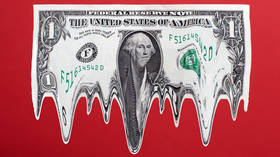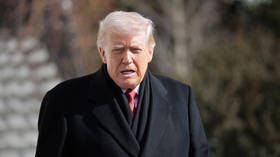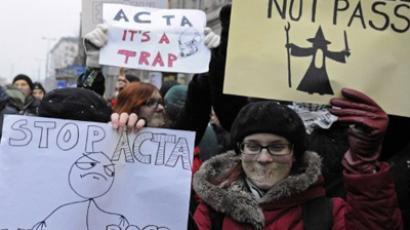EU may reject ACTA
The controversial pan-global anti-piracy agreement, ACTA, may soon be dead in the water. The Member of the European Parliament responsible for monitoring its progress through the European Union says it should be rejected.
The pact sparked anger among Europeans, with thousands protesting against giving big firms the power to ban people from using the Internet for illegally swapping files. Twenty-two countries in the bloc signed up to the agreement, with a vote on its ratification due this summer in Brussels.Political commentator Luke Samuel told RT that the treaty exposed how undemocratic the decision-making process is in the EU.“The real problem with ACTA, specifically, is how it shows that the European Union is effectively allowed to do politics without any reference to [its people],” he said. “This is not a piece of EU law, it’s a trade agreement that will bestow certain obligations on European countries to make law in certain ways.”The fact that national governments in the EU signed up to ACTA, Samuel continued, in no way means that ordinary people had any say in the provisions of the agreement. This, he said, makes the whole process “fundamentally anti-democratic.”Fabio Reinhardt from the Pirate Group of the German Parliament says public outrage will bring down this legislation.“I think it’s great that hundreds of thousands of people were on the streets in Europe to [stop ACTA], and ACTA may [be shelved internationally]. I think it’s great for civil rights,” he told RT. “I think it’s a phenomenon we haven’t seen before, that people were so eager to defend their rights, to communicate – something that really surprised politicians on various high levels.”ACTA is an international agreement aimed at protecting intellectual property. It somewhat resembles the US’s Stop Online Piracy Act (SOPA), which was shelved by lawmakers after protests.The US, most of the EU, Australia, Canada, Japan and several other countries have signed the ACTA treaty, but none of these signatories has yet ratified it. This last step would make the agreement viable. As soon as ACTA is ratified by any six countries, the convention will come into force.














